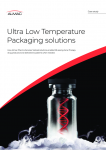TraceLink unveils FDA DSCSA pilot program results

TraceLink, which provides digital solutions for pharma and life-science supply chains, has released results from its pilot for the US Food and Drug Administration (FDA) Pilot Project Program, under the Drug Supply Chain Security Act.
The pilot reportedly centered around two workstreams:
- Digital recalls across a supply network
- An interoperable blockchain network solution
The pilots included 22 participating companies, representing pharma manufacturers, wholesale distributers, third-party logistics firms, hospitals and retail pharmacies.
The pilot program made use of early-stage technology solutions to tackle various pharma supply chain challenges, and to establish a deeper understanding of how technology can address those burdens. Both workstreams were designed to create a blueprint for the data, operational processes, business systems, and network connections required to realize DSCSA 2023 compliance and to digitalize pharmaceutical drug recalls.
Shabbir Dahod, TraceLink president and CEO, said the results from the DSCSA were informative and insightful.
“The results from our pilot gleaned significant insights that will help solve different, but equally important challenges that the pharmaceutical industry will continue to face until DSCSA 2023, with both workstreams undoubtedly highlighting the value of a digital network in improving processes and efficiencies within the supply chain,” Dahod said.
He added, “With the only established end-to-end digital supply network for the industry, TraceLink is in a unique position to help the industry begin acting on some of these pilot findings now. This includes improving processes and allowing better visibility, agility, and collaboration among supply chain stakeholders.”
Product recalls
Drug recalls create a variety of problems every year, including hundreds of thousands of patient deaths and hospitalizations from adverse effects. Additionally, a report published by McKinsey shows that such recalls cost the pharma industry billions of dollars in direct labor, recall management expenses, product-liability suits and loss of sales.
Participants in TraceLink’s digital recalls workstream pilot examined ways to tackle a variety of problems connected with outdated recall processes, including manual entry, disjointed communication and delays in communication among stakeholders.
“Participating in the recalls workstream further demonstrated how inefficient the current industry process is in executing product recalls,” said Joe Maki, pilot participant and senior director of pharmacy operations for Novant Health. “The learnings emphasized how a digital recalls platform could vastly improve the execution of recalls by eliminating manual, error-prone processes and would also help to better define accountability among supply chain stakeholders with improved collaboration - ultimately reducing the risk to patients by getting recalled product off the market faster.”
2023 traceability
By 2023, DSCSA will require an electronic, interoperable system by 2023 to identify and trace specific prescription therapies. TraceLink’s blockchain workstream evaluated existing information, processes, and systems to determine if they could meet 2023 DSCSA requirements, and how.
Pilot members analyzed strengths and weaknesses of proposed electronic network models for DSCSA 2023 (including TraceLink’s interoperable blockchain solution) to figure out if blockchain-centric and/or non-blockchain approaches may be effective. The findings identified blockchain as one piece of a larger technology solution that could support product traceability under the DSCSA 2023 guidelines; however, the pilot strongly indicates that reliance on any one technology or platform to meet DSCSA 2023 guidelines is extremely unlikely, according to the company.


















